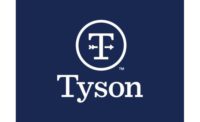Tyson Foods had released its fourth quarter and fiscal year-end financial results. The company reaches sales of $10.884 billion in the fourth quarter and $42.405 billion for the year, both of which improved upon last year’s results.
“Fiscal 2019 was highlighted by significant progress in our strategy to grow our business through differentiated capabilities, deliver service and value to our customers, and sustain our company and our world for future generations,” said Noel White, Tyson Foods’ president and CEO. “We expanded our global footprint, launched innovation in our iconic brands and our new alternative protein brand, and prepared for future growth by investing in technology and infrastructure.
“We’re very optimistic about fiscal 2020, and we currently expect to meet or exceed our long-term earnings algorithm of high single-digit adjusted earnings per share growth as we’re well positioned to take advantage of opportunities in the global marketplace.”
Summary of Segment Results
Beef - Sales volume decreased due to a reduction in live cattle processing capacity from the temporary closure of a production facility as a result of a fire. Average sales price increased as demand for beef products remained strong. Operating income increased as the company continued to maximize revenues relative to live fed cattle costs, partially offset by increased operating costs and $31 million of net incremental costs from the production facility fire.
Pork - Sales volume increased due to increased domestic availability of live hogs and strong demand for our pork products. Average sales price increased associated with higher livestock costs. Operating income decreased due to periods of compressed pork margins caused primarily by the combination of increased livestock supplies, excess domestic availability of pork and export constraints, which drove livestock costs up faster than sales prices.
Chicken - Sales volume increased primarily due to incremental volume from business acquisitions. Average sales price decreased due to market conditions and sales mix primarily associated with the acquisition of a poultry rendering and blending business in the fourth quarter of fiscal 2018. Operating income decreased due to increased operating costs and challenging pricing conditions. Additionally, operating income was impacted by approximately $40 million and $55 million for the twelve months and fourth quarter of fiscal 2019, respectively, of net feed ingredient costs and realized and mark-to-market derivative losses. Operating income was impacted by approximately $100 million and $60 million for the twelve months and fourth quarter of fiscal 2018, respectively, of net feed ingredient costs and realized and mark-to-market derivative losses.
Prepared Foods - Sales volume decreased primarily from business divestitures. Average sales price increased due to product mix, which was positively impacted by business divestitures, as well as pricing increases in our ongoing business from the pass through of raw material costs. Operating income decreased in the fourth quarter of fiscal 2019 and was relatively flat in fiscal 2019 compared to fiscal 2018 as strong demand for our products and improved product mix was partially offset by increased operating costs, including a $60 million increase in raw material costs. Additionally, operating income in the fourth quarter of fiscal 2019 was impacted by a $41 million impairment from a planned divestiture of a business. Operating income was impacted in fiscal 2018 by a $68 million impairment, net of realized gains, associated with the divestiture of non-protein businesses.
For more details visit https://ir.tyson.com/news/news-details/2019/Tyson-Foods-Reports-Fourth-Quarter-and-Fiscal-2019-Results/default.aspx.
Source: Tyson Foods



Report Abusive Comment